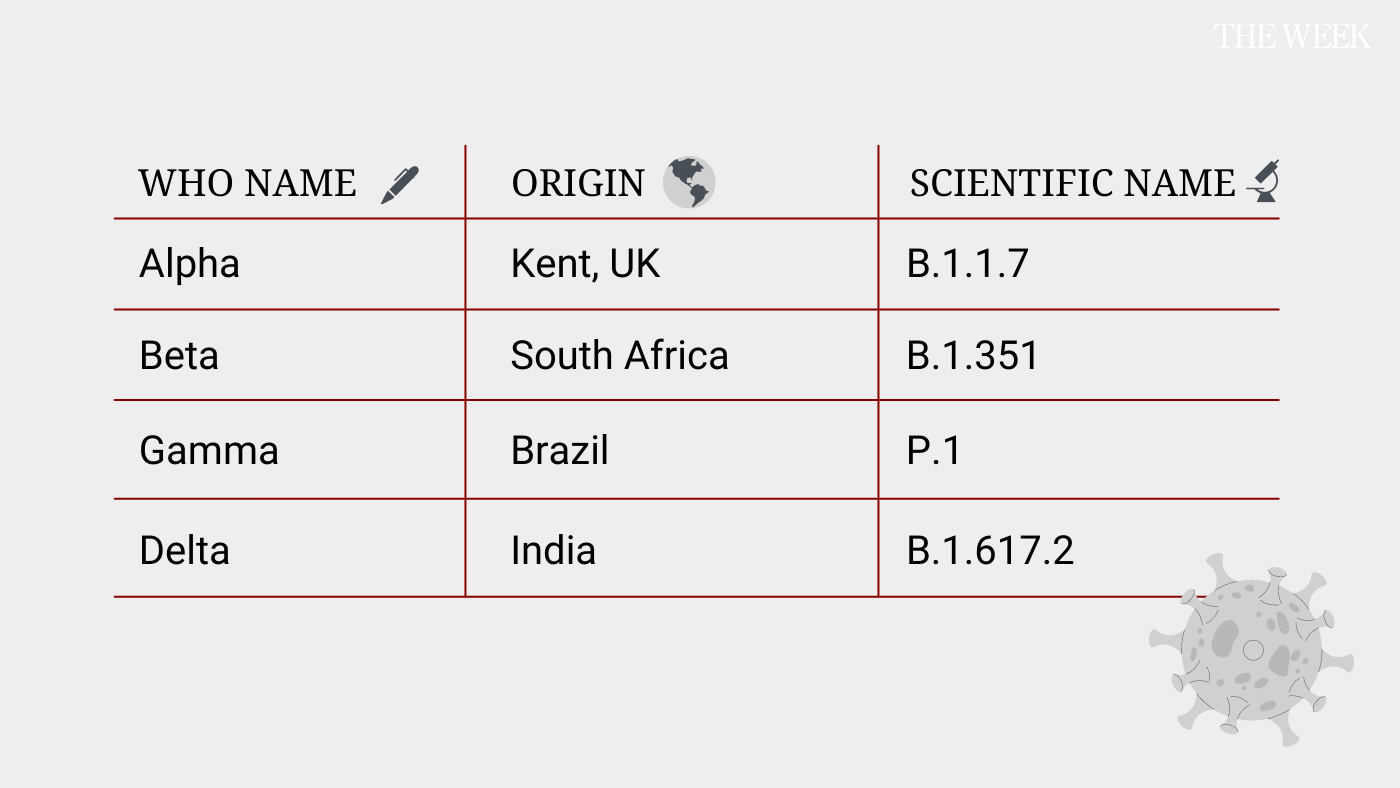Pfizer vaccine efficacy ‘decreases against Delta variant’
Data from Israel suggests jab is less effective at preventing infection with rapidly spreading strain of Covid

A free daily email with the biggest news stories of the day – and the best features from TheWeek.com
You are now subscribed
Your newsletter sign-up was successful
The effectiveness of the Pfizer-BioNTech vaccine in preventing Covid infection and symptomatic illness has dropped in Israel as the Delta variant spreads, according to a preliminary study.
The decline, reported by the country’s health ministry, has also coincided with the lifting of almost all coronavirus restrictions on 1 June, Israeli news site Ynet reports.
Data for the past month shows that the jab’s efficacy was 64% after two doses, down from 94% in May. But the vaccine was still 93% effective in preventing hospitalisations and serious illness - a relatively small drop from 98.2%.
The Week
Escape your echo chamber. Get the facts behind the news, plus analysis from multiple perspectives.

Sign up for The Week's Free Newsletters
From our morning news briefing to a weekly Good News Newsletter, get the best of The Week delivered directly to your inbox.
From our morning news briefing to a weekly Good News Newsletter, get the best of The Week delivered directly to your inbox.
Uptick in infection
“Israel has been one of the most successful countries in the world in tackling the pandemic,” says the BBC.
According to latest Oxford University tracking, 60% of Israel’s 9.3 million population have received both jabs, compared with about 50% in the UK.
After then prime minister Benjamin Netanyahu became the first person in Israel to receive a shot, on 19 December, the average number of daily confirmed Covid cases hit more than 8,000 in January but then declined to reach just double digits in May.
A free daily email with the biggest news stories of the day – and the best features from TheWeek.com
However, “cases have ticked up since Israel lifted all remaining Covid-19 restrictions” at the start of June, reports the Financial Times. And experts are “blaming the highly transmissible Delta variant”, which was first detected in India.
A total of 324 new infections were reported in Israel yesterday, although the number of Covid-related deaths has remained very low.
The Delta variant is thought to be responsible for 90% of new cases recorded over the past two weeks in the country, which has used the Pfizer-BioNTech jab for “almost all vaccinated Israelis”, says The Times of Israel.
‘Preliminary signal’
Public Health England (PHE) has “also documented a drop in efficacy for the Pfizer jab against the Delta variant, though less severe”, says the FT.
A PHE study published in May found that the jab offered 88% protection against symptomatic infection from the Delta strain after two doses, compared with 93% against the Alpha variant (also known as the Kent variant).
In Israel, about half of adults infected during the ongoing Delta outbreak were fully inoculated with the Pfizer vaccine. The chair of Israel’s National Expert Panel on Covid-19, Ran Balicer, told the AFP news agency yesterday that the rise in new cases was a “preliminary signal” of “some decrease in vaccine effectiveness against mild illness - but not severe illness”.
But he stressed that it was “too early to precisely assess vaccine effectiveness against the variant”.
Responding to the new Israeli data, New York-based pharmaceutical giant Pfizer noted that the study was still preliminary and that existing evidence has shown that the jab works against a number of variants of concern, including Delta.

Contrast to UK
Israel’s reaction to the surge in Delta infections “stands in contrast with that of the UK”, says the FT. While Boris Johnson is pressing forward with a full lifting of Covid restrictions from 19 July, Israel is considering reintroducing the measures removed there last month.
Mandatory masks in public enclosed spaces have already been reinstated in a bid to stem the rise in cases, while doctors are calling for ministers to roll out vaccine booster shots.
And the Israeli government’s coronavirus cabinet is meeting today “to consider the reinstitution of restrictions” including social gathering limits, along with a return to the country’s “green passport” scheme for people who have been fully vaccinated, reports Ynet.
-
 How the FCC’s ‘equal time’ rule works
How the FCC’s ‘equal time’ rule worksIn the Spotlight The law is at the heart of the Colbert-CBS conflict
-
 What is the endgame in the DHS shutdown?
What is the endgame in the DHS shutdown?Today’s Big Question Democrats want to rein in ICE’s immigration crackdown
-
 ‘Poor time management isn’t just an inconvenience’
‘Poor time management isn’t just an inconvenience’Instant Opinion Opinion, comment and editorials of the day
-
 A Nipah virus outbreak in India has brought back Covid-era surveillance
A Nipah virus outbreak in India has brought back Covid-era surveillanceUnder the radar The disease can spread through animals and humans
-
 Covid-19 mRNA vaccines could help fight cancer
Covid-19 mRNA vaccines could help fight cancerUnder the radar They boost the immune system
-
 The new Stratus Covid strain – and why it’s on the rise
The new Stratus Covid strain – and why it’s on the riseThe Explainer ‘No evidence’ new variant is more dangerous or that vaccines won’t work against it, say UK health experts
-
 RFK Jr. vaccine panel advises restricting MMRV shot
RFK Jr. vaccine panel advises restricting MMRV shotSpeed Read The committee voted to restrict access to a childhood vaccine against chickenpox
-
 RFK Jr. scraps Covid shots for pregnant women, kids
RFK Jr. scraps Covid shots for pregnant women, kidsSpeed Read The Health Secretary announced a policy change without informing CDC officials
-
 New FDA chiefs limit Covid-19 shots to elderly, sick
New FDA chiefs limit Covid-19 shots to elderly, sickspeed read The FDA set stricter approval standards for booster shots
-
 RFK Jr.: A new plan for sabotaging vaccines
RFK Jr.: A new plan for sabotaging vaccinesFeature The Health Secretary announced changes to vaccine testing and asks Americans to 'do your own research'
-
 Five years on: How Covid changed everything
Five years on: How Covid changed everythingFeature We seem to have collectively forgotten Covid’s horrors, but they have completely reshaped politics